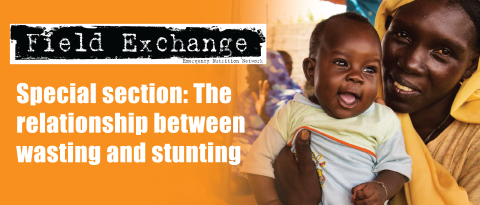Scaling up care for children with severe acute malnutrition in South Sudan.
United Nations Children Fund (UNICEF). (2020). Scaling up care for children with severe acute malnutrition in South Sudan: Lessons learned from expanding quality services in a complex emergency context. New York: UNICEF. Available from: https://www.unicef.org/southsudan/documents/scaling-care-children-severe-acute-malnutrition-south-sudan
South Sudan faces a complex and protracted crisis and even before the conflict, the prevalence of global acute malnutrition in 2010 was 23% (Ministry of Health, National Bureau of Statistics, 2010). In 2013, the Government of South Sudan, UNICEF, and partners intervened to scale up services for children with severe acute malnutrition (SAM), and in 2014, UNICEF and the World Food Programme (WFP) launched a joint Nutrition Scale-Up Plan. The plan concentrated on a community-based prevention approach, promoted the continuum of care at nutrition sites, directly delivered nutrition interventions in hard-to-reach areas, developed the capacity of partners and governments, strengthened supply chains and pipeline management, enhanced needs analyses and coordination, and strengthened monitoring and evaluation. Several joint strategies were also piloted to improve programme efficiency and accelerate results, such as adopting a one common partner per location approach for UNICEF and WFP treatment programmes.
The scale-up of the community-based management of acute malnutrition (CMAM) programme was implemented as part of a broader strategy to improve maternal and child nutrition, which increased access to preventative services and improved infant and young child feeding practices. The proportion of children admitted to the CMAM programme compared with those in need increased from 40% in 2014 to 77% in 2018. The number of outpatient therapeutic programme sites more than doubled, from 351 sites in 2014 to 1,145 sites in 2019. Between 2014 and 2019, the proportion of children with SAM who recovered increased (78% to 91%), the proportion of children defaulting declined (17.4% to 5.3%), and the death rate remained low.
The report identified several challenges to effective scale-up: low health system capacity, the lack of long-term funding, poor infrastructure, occasional looting of nutrition supplies and supply pipeline disruptions, high staff turnover, and cancellations and postponements of integrated Rapid Response Missions.1 The report also identified several enablers and lessons learned, including the need to:
- Mobilise political support and engagement from the highest levels of government for programme ownership, policymaking, and accountability.
- Leverage global evidence to encourage government endorsement of national guidelines using clear and easy-to-follow materials.
- Provide technical support, leadership, and coordination to jointly plan, implement, monitor, and report on CMAM strategies and activities within a government-United Nations-non-governmental organisation partnership.
- Mobilise communities for active programme engagement and create awareness and demand for CMAM services through community nutrition volunteers and mother-to-mother support groups.
- Develop the capacities of skilled health workers using harmonised training packages to support programme delivery with expanded coverage and quality, and test innovations to address bottlenecks and improve programme efficiency.
- Facilitate a smooth supply pipeline for therapeutic foods with a tracking system and pre-position supplies to avoid stockouts.
- Enable evidence-based, data-driven decisions by integrating child nutrition indicators across sectors and programmes, setting targets, and monitoring progress.
South Sudan's experience shows that it is possible to scale up a resilient, collaborative CMAM programme during an ongoing humanitarian crisis. However, predictable long-term funding and a stronger health system are needed to sustain the programme into the future.
References
Ministry of Health, National Bureau of Statistics (2010) South Sudan Household Health Survey, 2010. https://reliefweb.int/report/sudan/sudan-household-and-health-survey-second-round-2010-summary-report
1 Rapid Response Missions deliver services directly to vulnerable women and children in hard-to-reach communities.


